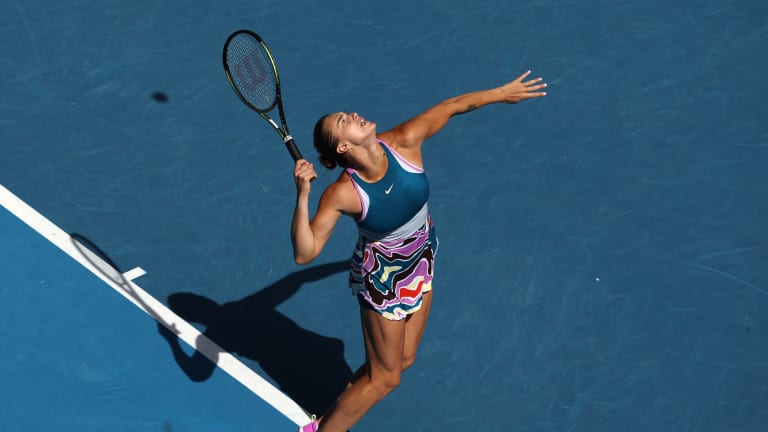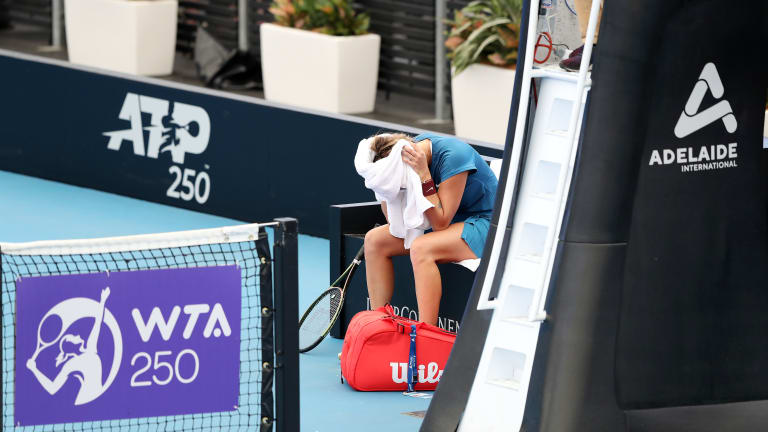Australian Open
How exactly did Aryna Sabalenka figure out her serve?
By Jan 30, 2023Australian Open
Australia at Last: Reflections on a first trip to the AO
By Jan 29, 2025Australian Open
Alexander Zverev must elevate his game when it most counts—and keep it there
By Jan 27, 2025Australian Open
Jannik Sinner draws Novak Djokovic comparisons from Alexander Zverev after Australian Open final
By Jan 26, 2025Australian Open
Alexander Zverev left to say "I'm just not good enough" as Jannik Sinner retains Australian Open title
By Jan 26, 2025Australian Open
Jannik Sinner is now 3-0 in Grand Slam finals after winning second Australian Open title
By Jan 26, 2025Australian Open
Taylor Townsend and Katerina Siniakova win second women's doubles major together at the Australian Open
By Jan 26, 2025Australian Open
Madison Keys wins her first Grand Slam title at Australian Open by caring a little bit less
By Jan 25, 2025Australian Open
Henry Patten, Harri Heliovaara shrug off contentious first set to win Australian Open doubles title
By Jan 25, 2025Australian Open
Aryna Sabalenka takes a rare loss in Australian Open slugfest
By Jan 25, 2025Australian Open
How exactly did Aryna Sabalenka figure out her serve?
In a long, painful—but ultimately successful—battle, her decisions to retain her coaches and become her own psychologist paid huge dividends.
Published Jan 30, 2023
Advertising
Advertising

“Right now I’m a little bit more calm on court,” Sabalenka said in Melbourne. “I think I really believe that this is the only thing that was missing in my game.”
© Getty Images
Advertising

Sabalenka lost her opening matches at both Adelaide tune-up tournaments in 2022. This year, she won the Adelaide International 1 title without dropping a set.
© Getty Images